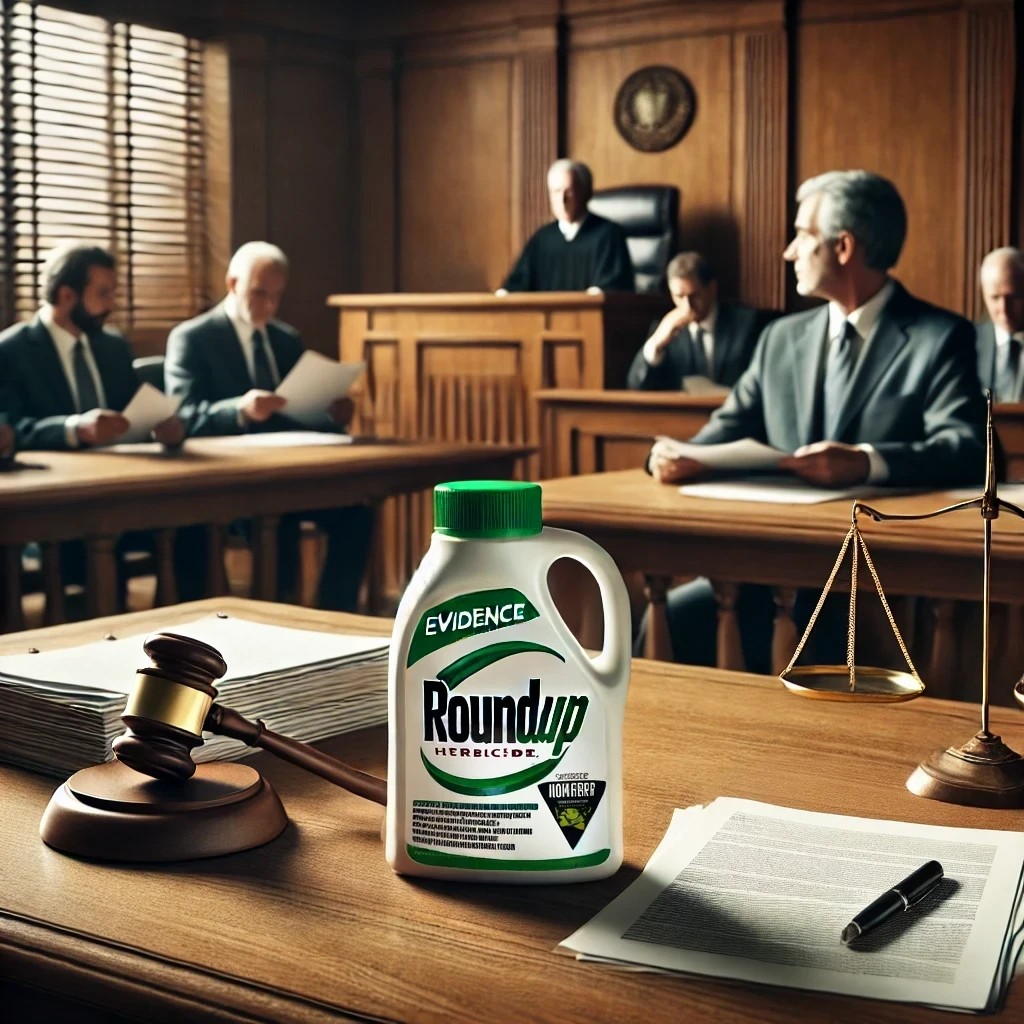Across the nation, individuals exposed to the weed killer Roundup have filed lawsuits against Bayer and Monsanto, the makers of the herbicide, claiming it causes cancer and other serious health effects. Many plaintiffs in these Roundup cancer lawsuits allege that the product’s primary ingredient, glyphosate, led to a diagnosis of non-Hodgkin’s lymphoma, triggering multiple high-stakes Roundup cancer trials. This month’s developments continue to impact attorneys representing individuals in Roundup cases, with the latest Roundup lawsuit settlements and circuit court rulings providing valuable insights. The herbicide Roundup remains under scrutiny as new cases surface, making it crucial for attorneys to stay informed on litigation progress, regulatory rulings, and potential future claims.
At Mass Tort America, our team understands the importance of addressing these Roundup weedkiller cancer lawsuits with precision and care. Whether attorneys are handling an individual lawsuit or a Roundup class action, we provide the resources and coordination necessary to streamline the legal process, allowing attorneys to focus on achieving the best possible outcomes. With plaintiffs coming from various regions, including high-profile cases in Philadelphia courts and federal court, including significant decisions by the Philadelphia Court of Common Pleas, known for its plaintiff-friendly stance in Roundup cancer lawsuits, our services extend nationwide to ensure comprehensive legal support for attorneys across the country.
Roundup Lawsuit Updates
Staying updated on the latest developments in Roundup litigation is crucial for both attorneys and plaintiffs. As of October 2024, there are over 4,300 active Roundup lawsuit cases in federal multidistrict litigation (MDL) in California. One of the most significant recent updates includes a $2.25 billion verdict awarded to a Pennsylvania man who claimed that Roundup caused his non-Hodgkin lymphoma. This landmark verdict underscores the potential for substantial compensation in these cases.
Roundup lawyers continue to accept new claims, offering plaintiffs the opportunity to either go to trial or negotiate a potential settlement. With ongoing litigation and new evidence emerging, it is essential for attorneys to stay informed about the latest Roundup lawsuit updates to effectively represent their clients and secure favorable outcomes.
History Of Roundup NHL Lawsuits
The litigation surrounding Roundup and non-Hodgkin lymphoma (NHL) has evolved into one of the largest mass tort cases in U.S. history. The journey began with the World Health Organization (WHO) classifying glyphosate, Roundup’s primary ingredient, as a “probable human carcinogen” in 2015. This declaration sparked widespread concern and led to a surge in Roundup cancer claims.
Despite the Environmental Protection Agency’s (EPA) stance that glyphosate is safe when used as directed, the lack of regulatory action has fueled ongoing litigation. The first Roundup cases to go to trial resulted in significant verdicts against Bayer, including a $289 million award in 2018 and an $80 million verdict shortly thereafter. These early victories for plaintiffs set the stage for numerous subsequent lawsuits and class action cases in state courts nationwide.
Health Risks And Regulatory Responses Surrounding Roundup Cancer Lawsuit
The health risks linked to exposure to Roundup are central to ongoing litigation. The World Health Organization’s International Agency for Research on Cancer (IARC) classified glyphosate as a “probable human carcinogen” in 2015, raising cancer risk concerns. This classification has fueled numerous Roundup cancer claims, as more people report adverse health effects after regular exposure to Roundup products. Plaintiffs in these cases have alleged that using Roundup weedkiller in residential and occupational settings led to health complications, particularly non-Hodgkin’s lymphoma, which has become a focal point in Roundup cancer trials.
Although the Environmental Protection Agency (EPA) still maintains that glyphosate is safe when used correctly, other regulatory agencies and scientific studies contradict this stance. The IARC’s classification contrasts with the EPA’s position, adding complexity to Roundup weed killer lawsuits. Roundup lawyers often use evidence from international and national health agencies to argue for plaintiffs, citing the cancer risks associated with Roundup exposure. The debate over whether Roundup caused specific cancers is ongoing, yet courts continue to see a surge in claims, with lawyers drawing on both regulatory assessments and scientific findings to make their cases.
New evidence, including internal company documents, has surfaced in recent cases, bolstering the claims of Roundup victims. These documents suggest Monsanto was aware of the potential cancer risks linked to glyphosate, which may strengthen the cases of those exposed to Roundup who have since filed lawsuits. Attorneys handling Roundup lawsuits need to remain updated on these findings, as they play a vital role in shaping the arguments presented in both individual lawsuits and multidistrict litigation.
Landmark Roundup Verdicts And Roundup Class Action Lawsuit Developments
Several high-profile Roundup verdicts in recent years have highlighted the varied outcomes of Roundup cancer lawsuits. In 2018, a California jury awarded a plaintiff $289 million after determining that Roundup caused his cancer, marking one of the largest Roundup lawsuit settlements to date. Similar victories have followed, although not all trials have ended favorably for plaintiffs; some resulted in defense verdicts, underscoring the need for experienced Roundup lawyers who understand the nuances of these cases. Recent developments in Roundup multidistrict litigation (MDL) reveal how these complex cases are handled in federal courts, with attorneys navigating circuit court and federal law.
Roundup lawsuits Bayer has faced continue to evolve, particularly with the influence of appeals courts. For instance, the Third Circuit Court of Appeals has seen multiple Roundup cases addressing regulatory preemption, labeling, and the duty to warn. These cases impact ongoing Roundup litigation by clarifying legal standards for the admissibility of evidence, the application of punitive damages, and whether Monsanto had an obligation to provide cancer warnings on Roundup’s labels. Some cases have also made their way to the Supreme Court, with requests for review on federal preemption and labeling standards, leaving many attorneys to question how these decisions could affect Roundup claims.
The rise of class action lawsuits has also brought attention to the complexities of Roundup cancer lawsuits. Class action cases provide plaintiffs who may not otherwise qualify for a Roundup lawsuit with the opportunity to join larger, collective claims. Recent rulings in state and federal courts, including the Philadelphia Superior Court and Oregon Appeals Court, highlight the variability in court responses to these claims. Attorneys involved in Roundup class action lawsuits must stay abreast of these developments to best represent their clients and guide them through a process that may include appeals or additional litigation.
Filing A Roundup Lawsuit
Filing a Roundup lawsuit involves a detailed and methodical process, requiring substantial evidence to support the claim. Individuals who have been exposed to Roundup weed killer and subsequently developed non-Hodgkin’s lymphoma or another related cancer may be eligible to file a lawsuit. Key steps include:
- Proof of Exposure: Plaintiffs must provide evidence of their exposure to Roundup, such as purchase receipts, usage logs, or witness statements.
- Medical Diagnosis: A confirmed diagnosis of non-Hodgkin’s lymphoma or another related cancer is essential.
- Legal Representation: Engaging an experienced Roundup lawyer is crucial. These attorneys can guide plaintiffs through the complex legal landscape, ensuring all necessary documentation and evidence are properly compiled.
By working with knowledgeable Roundup lawyers, individuals can navigate the intricacies of filing a lawsuit against large corporations like Bayer, increasing their chances of a successful outcome.
Roundup Settlement, Future Claims, and Legal Strategies
As Roundup MDL cases move forward, settlement opportunities continue to arise for plaintiffs. In 2020, Bayer reached a historic settlement of nearly $10 billion to resolve a significant number of Roundup lawsuits, though plaintiffs continue to file a Roundup lawsuit in state and federal courts. The terms of these settlements vary. The average Roundup settlement can vary greatly depending on factors such as the severity of the illness and the extent of exposure to the product, with many Roundup lawsuit plaintiffs receiving compensatory and, in some cases, punitive damages. Although the settlement process can provide relief for some plaintiffs, it remains essential for attorneys to evaluate whether each client’s case would benefit more from a Roundup trial or a direct settlement.
For attorneys, understanding the statute of limitations is key when helping clients determine if they are eligible to file a Roundup lawsuit. This time limitation varies by state, and attorneys should prioritize filing lawsuits before the deadlines expire. Roundup cancer claims are still eligible to be filed in certain jurisdictions, and new cases, such as wrongful death lawsuits, continue to emerge. Attorneys with clients who are eligible to file a Roundup lawsuit should prioritize gathering detailed exposure histories, medical diagnoses, and any evidence that may support claims for future Roundup cancer claims.
The latest Roundup weedkiller trial outcomes indicate that plaintiffs can still achieve favorable results. These Roundup trials continue to shape the legal landscape, with significant implications for future litigation. However, given the ongoing appeals and potential for Supreme Court review, the legal landscape remains complex. Attorneys are encouraged to stay informed on the latest Roundup lawsuit updates to adapt their strategies in response to evolving case law and recent rulings, whether in state courts, federal courts, or specific appeals court jurisdictions.
Working with Roundup Lawyers
Collaborating with experienced Roundup lawyers is vital for individuals seeking justice and compensation for their injuries. These specialized attorneys play a critical role in:
- Navigating Legal Complexities: Roundup lawyers understand the intricate legal processes involved in these cases, from filing claims to presenting evidence in court.
- Gathering Evidence: They assist in collecting and organizing the necessary proof of Roundup exposure and medical diagnoses.
- Negotiating Settlements: Skilled lawyers can negotiate favorable settlements, ensuring plaintiffs receive fair compensation without the need for prolonged litigation.
- Understanding Statute of Limitations: The timeframe for filing a Roundup lawsuit varies by state, typically ranging from 1 to 3 years after diagnosis or the discovery of the connection between Roundup and cancer. Roundup lawyers provide crucial guidance on these deadlines to ensure timely filing.
By leveraging the expertise of Roundup lawyers, plaintiffs can effectively pursue their claims and achieve the best possible outcomes.
Why Choose Mass Tort America to Represent Your Roundup Case?
With Mass Tort America, attorneys can find the resources and support necessary to navigate the complex world of Roundup litigation. Our team is well-versed in the legal challenges surrounding the weedkiller Roundup, ensuring comprehensive support for attorneys handling these cases. Our experienced team assists with everything from case preparation to coordinating with clients, making it easier for attorneys to manage their caseloads effectively. Through our services, attorneys have access to essential tools and a dedicated concierge team, which aids in handling cases across multiple jurisdictions, including Philadelphia courts and federal multidistrict litigation.
Mass Tort America is committed to helping attorneys provide the best outcomes for their clients, whether they are pursuing an individual Roundup lawsuit or part of a class action. With our extensive knowledge of Roundup cases and comprehensive support structure, we simplify the litigation process, ensuring that attorneys can focus on delivering justice to those affected by Roundup exposure. Contact us at 800-356-4338 or fill out our contact form at https://masstortamerica.com/contact/ for more information on how we can support your Roundup cases.



















